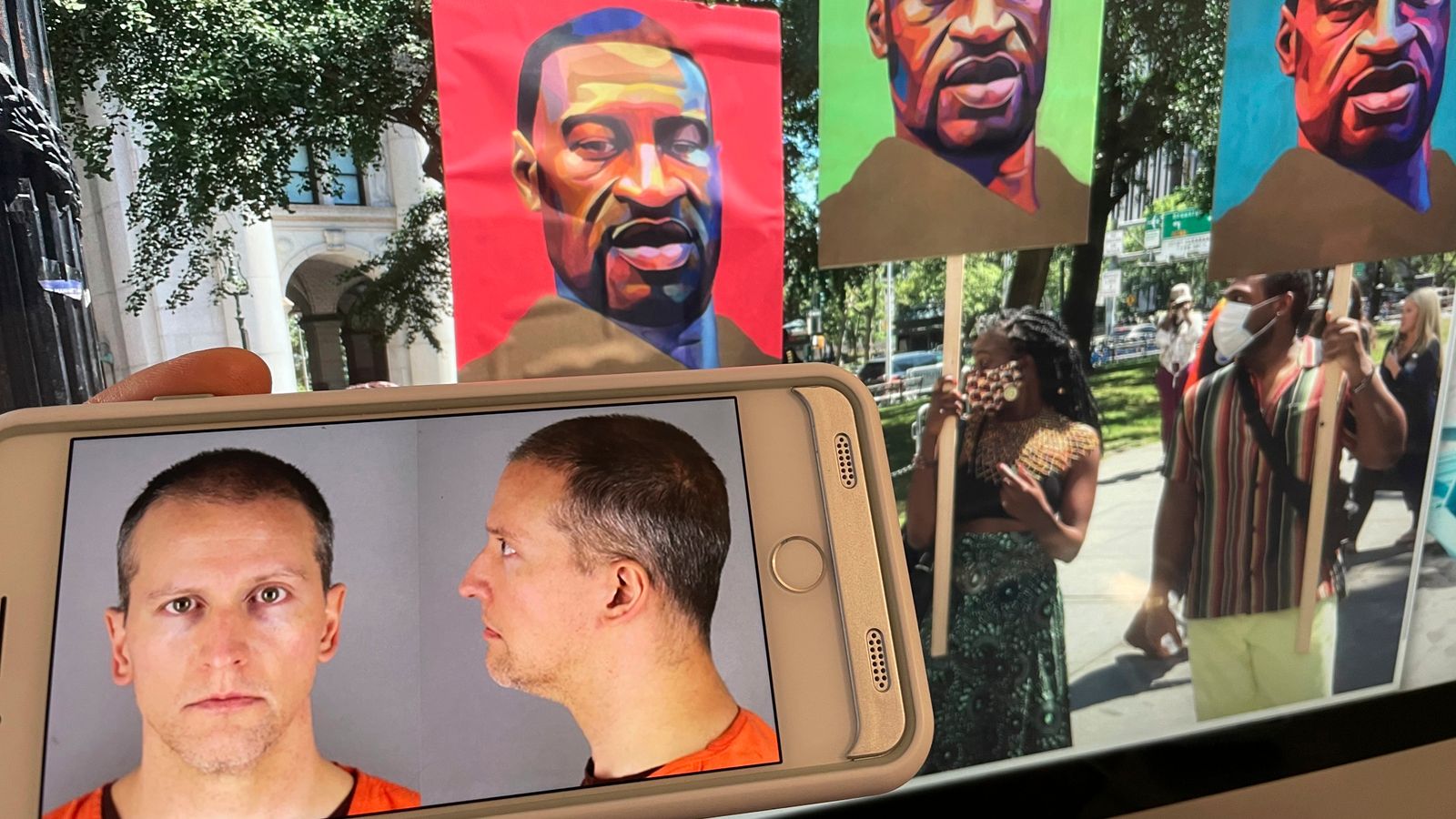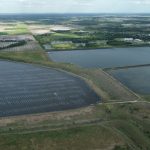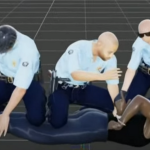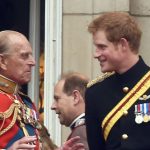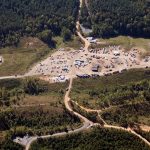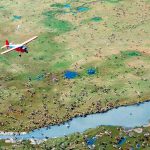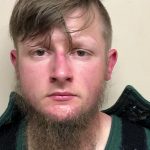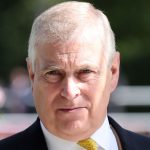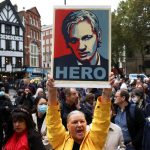Police officer Derek Chauvin gave onlookers a “cold” and “heartless” stare as they pleaded with him to take his knee off George Floyd’s neck, a witness has said.
The 18-year-old witness, who the court asked to be identified only by her first name Darnella, filmed the arrest that ended with Mr Floyd’s death in May last year.
Chauvin, 45, is charged with murder and manslaughter.
He is accused of killing the handcuffed Mr Floyd, 46, by pinning him to the pavement for what prosecutors say was nine minutes and 29 seconds while arresting him on suspicion of using a fake $20 note.
At Hennepin County courthouse in Minneapolis, Darnella said Chauvin had continued to kneel on Mr Floyd’s neck while another officer, Tou Thao, prevented onlookers from going to his aid.
Darnella said: “They definitely put their hands on the mace, and we all pulled back.”
Please use Chrome browser for a more accessible video player
Speaking of Chauvin, she said: “He just stared at us, looked at us. He had like this cold look, heartless. He didn’t care. It seemed as if he didn’t care what we were saying.”
Darnella had been walking to a convenience store with her nine-year-old cousin when she saw what was happening and she had sent the child inside because she did not want her to see ” a man terrified, scared, begging for his life”.
She told the court she had started filming because “it wasn’t right – he was suffering, he was in pain”.
Mr Floyd died after telling officers that he could not breathe and video showed onlookers angrily shouting at police to get off him.
His death sparked protests around the world against racism and police brutality.
Watching her footage in court, Darnella said she now looks at her father and other black men in her life and thinks about “how that could have been one of them”.
She said: “I stay up at night apologising to George Floyd for not doing more… not saving his life.”
“It’s not what I should have done, it’s what (Chauvin) should have done.”
Please use Chrome browser for a more accessible video player
Also on Tuesday, an off duty first responder – Genevieve Hansen – told the court she had witnessed the scene and had repeatedly asked to check Mr Floyd’s pulse.
She said she had seen fluid coming from Mr Floyd’s body and, being a qualified emergency medical technician, she knew that patients sometimes release their bladders when they are dying.
Her 911 call from the scene was played to the jury and she could be heard saying: “I literally watched police officers not take a pulse and not do anything to save a man.”
Ms Hansen said she was told by police officer Thao to stay away from Mr Floyd while he was being knelt on, saying he had told her “If you are a Minneapolis firefighter, you would know better than to get involved”.
Chauvin denies the charges against him.
His lawyer Eric Nelson is trying to prove that he and his fellow officers were in an increasingly tense situation, as onlookers became agitated by what was happening to Mr Floyd.
They have also argued that Chauvin did what he was trained to do.
Mr Floyd’s death was not caused by Chauvin but instead by a combination of illegal drug use, heart disease, high blood pressure and adrenaline, defence lawyers have told the court.
Under cross-examination from Mr Nelson, Darnella agreed bystanders had become increasingly upset by what they were seeing and had become louder – “more so as he was becoming more unresponsive”.
When asked if she saw any violence, she said she had – “from the cops, from Chauvin, and from officer Thao”.
Analysis by Sally Lockwood, Sky News correspondent
What we’re learning for the first time is what was going on behind the camera the day George Floyd died.
The defence is seeking to paint a picture of an unruly mob who were distracting and intimidating Derek Chauvin. Not so says the prosecution. Testimony by testimony, prosecutors are building a picture of who was there and how they felt – an off-duty firefighter begging to administer first aid, teenagers, a child.
Every witness so far has made it clear what they saw felt wrong. Their sense of helplessness and concern as they watched George Floyd suffering. Three of those people called the police on the police.
Many find the video too distressing to watch. We’re now hearing what it felt like to see George Floyd’s arrest first hand. Imagine being nine years old and seeing that – the youngest witness said it made her feel “mad and sad”.
Testimony from a child is challenging in court but can be enormously powerful. Children don’t have the same bias or prejudices as adults. Their accounts are often seen as more raw.
The off-duty first responder provided powerful evidence for the prosecution too – calling 911 to say the police were doing nothing “to save a man”.
Four witnesses under the age of 18 at the time of George Floyd’s death, gave evidence off-camera.
Darnella, the teenager who filmed the viral video of George Floyd described how it’s changed her life. “He sounded terrified. He sounded like he knew it was over for him,” she said. She told the court she blames herself for not intervening.
“When I look at George Floyd, I look at my dad. I look at my brothers. I look at my cousins, my uncles, because they’re all Black,” she said.
“It’s been nights I stayed up apologising and apologising to George Floyd for not doing more and not physically interacting and not saving his life”
But she acknowledged she feels the ultimate blame lies with Derek Chauvin.
That is what the trial is seeking to determine in the coming weeks. If Derek Chauvin’s actions were the cause of George Floyd’s death.
But one thing is more clear – had it not been for the teenager filming his arrest and sharing it with the world online, we may not be where we are now: America having a moment of racial reckoning.
People taking to the streets in protest worldwide.
The justice system seeking to determine if this police officer committed murder.
